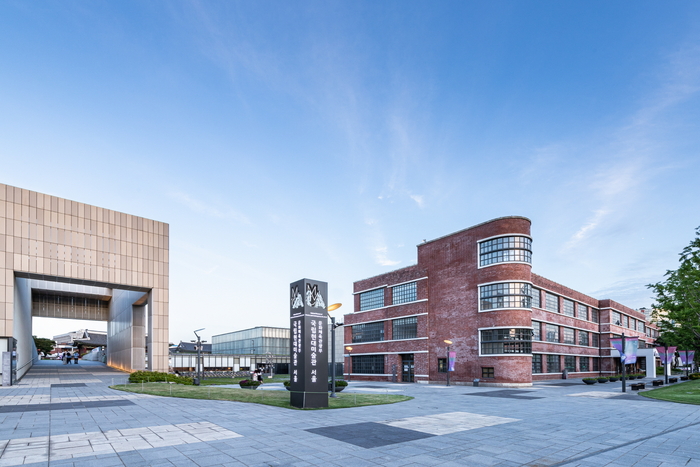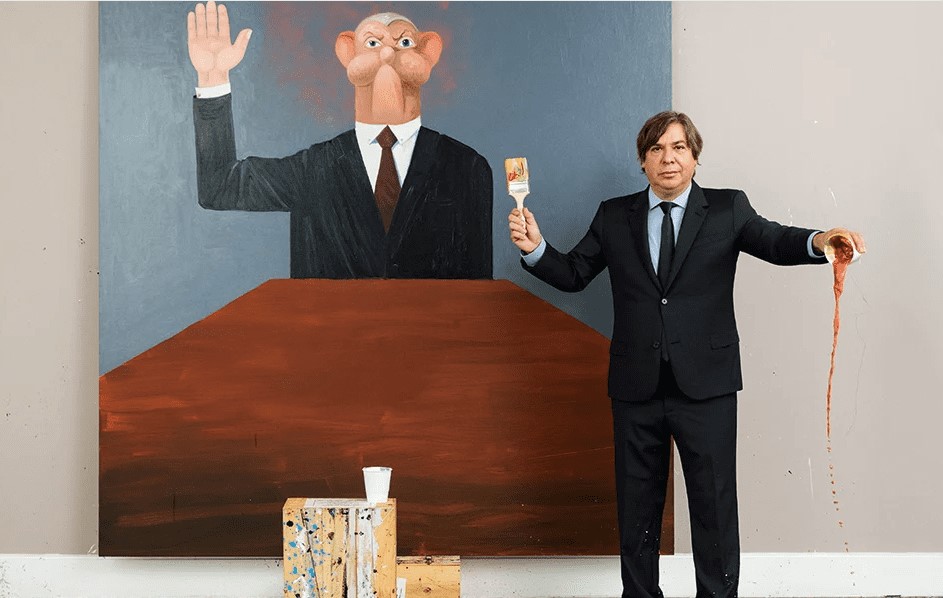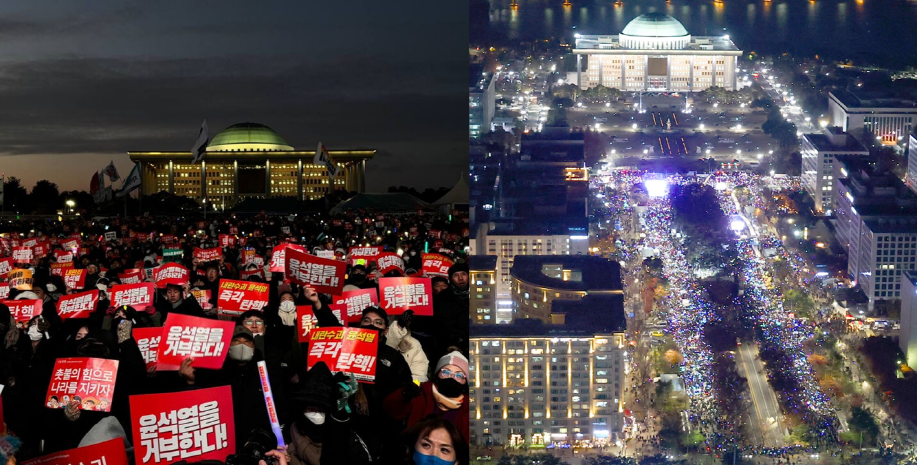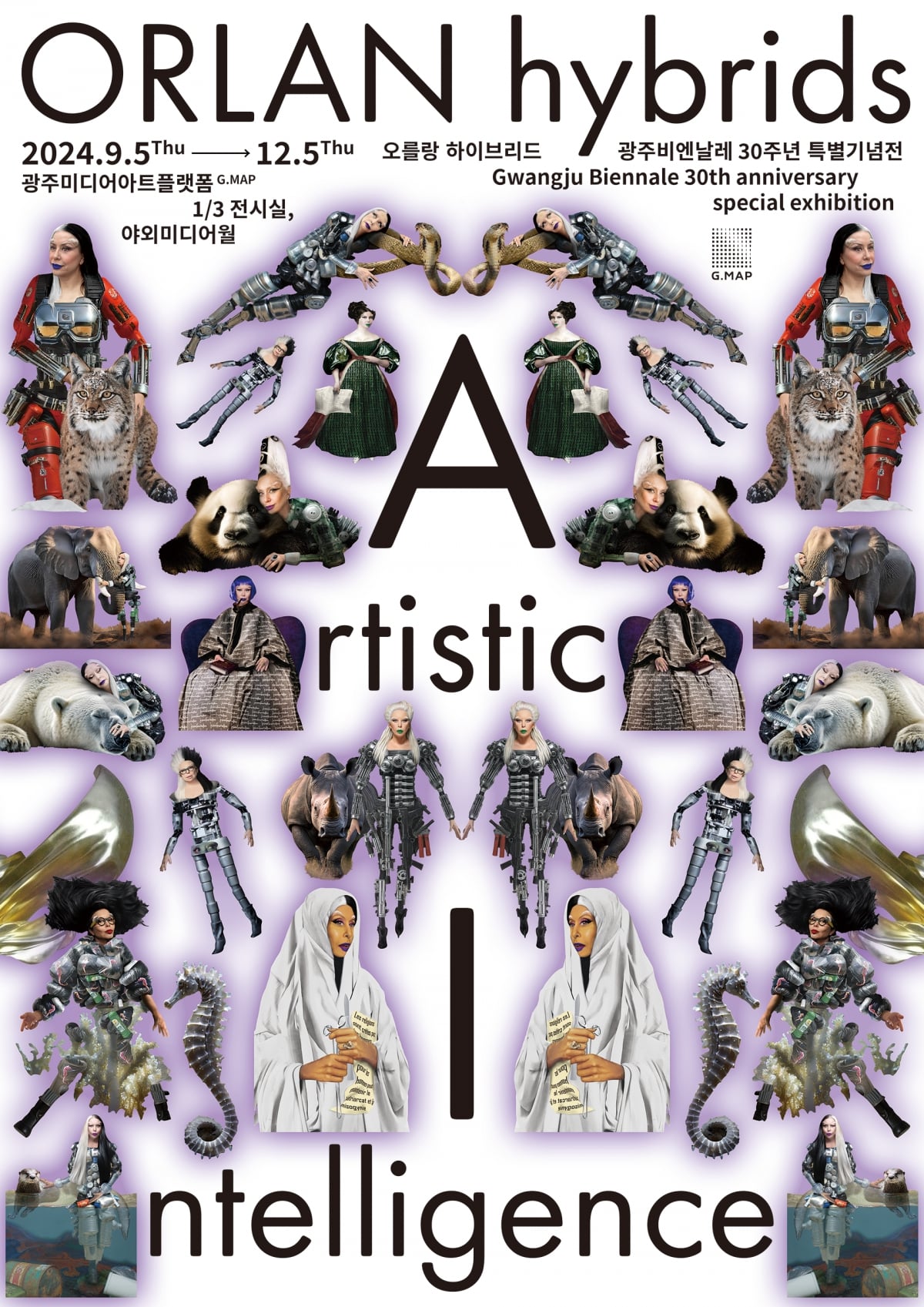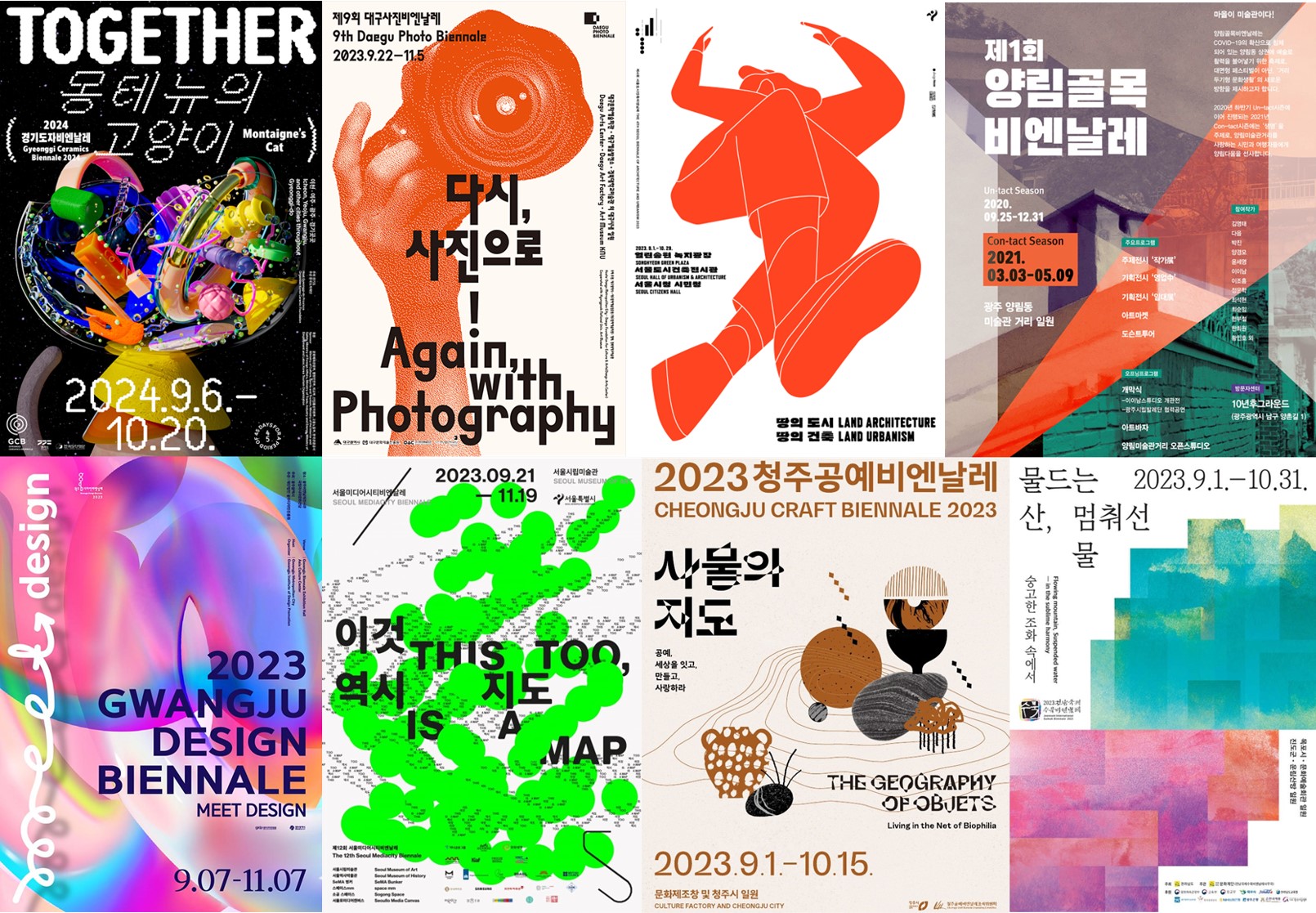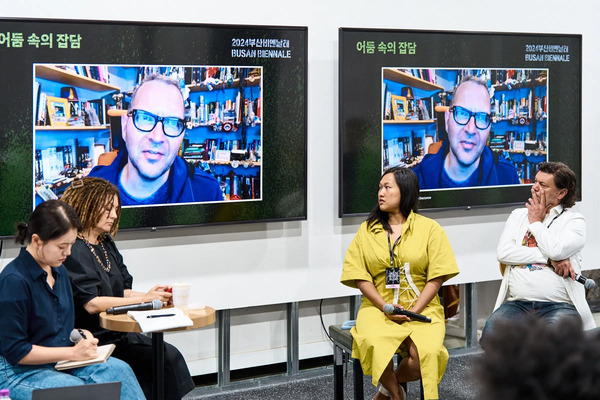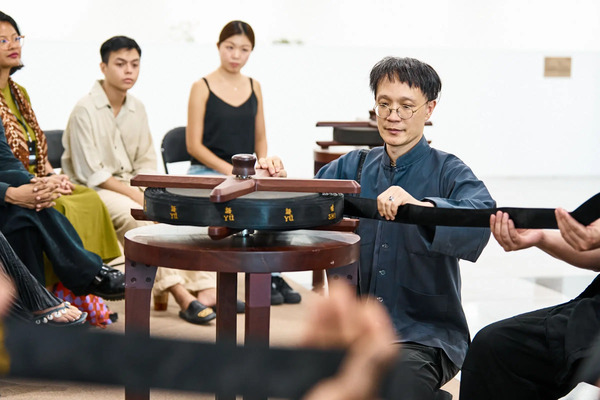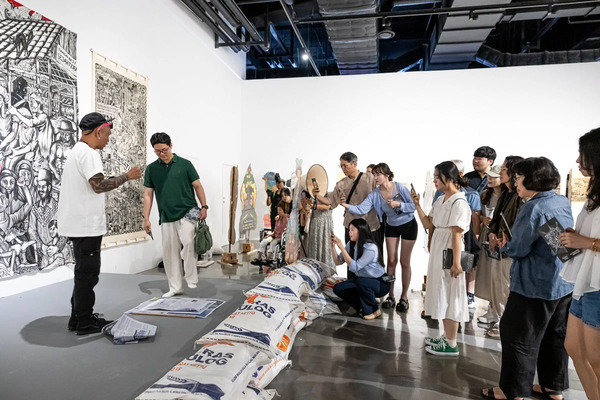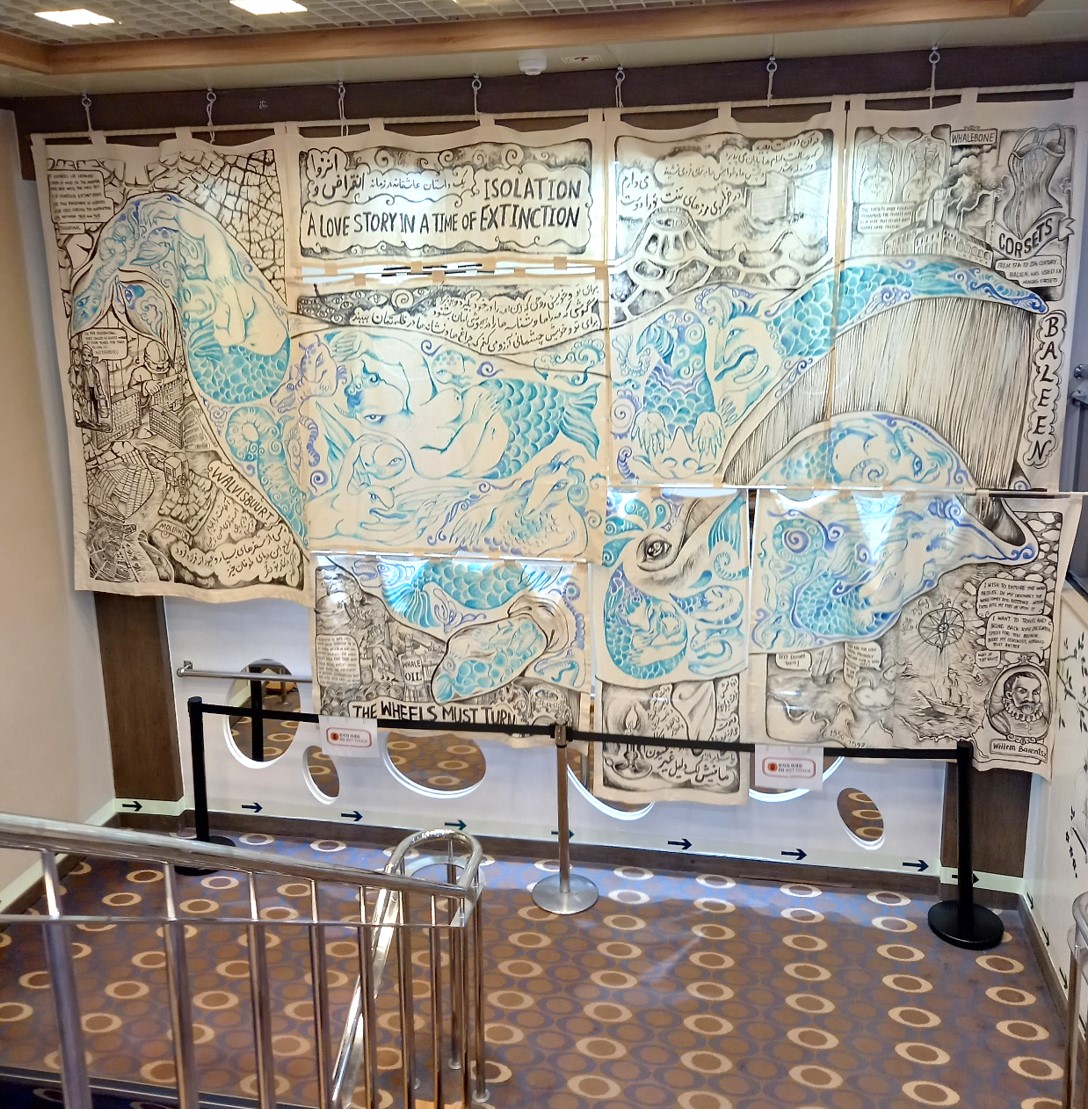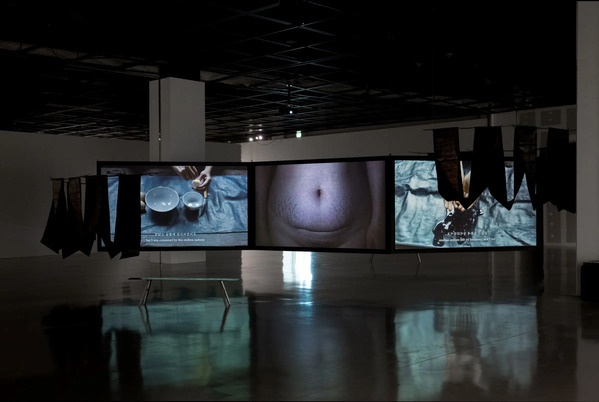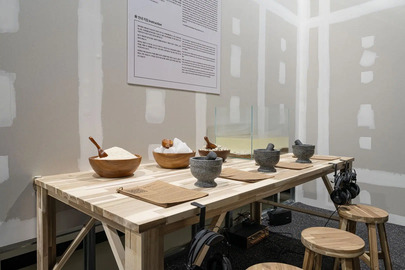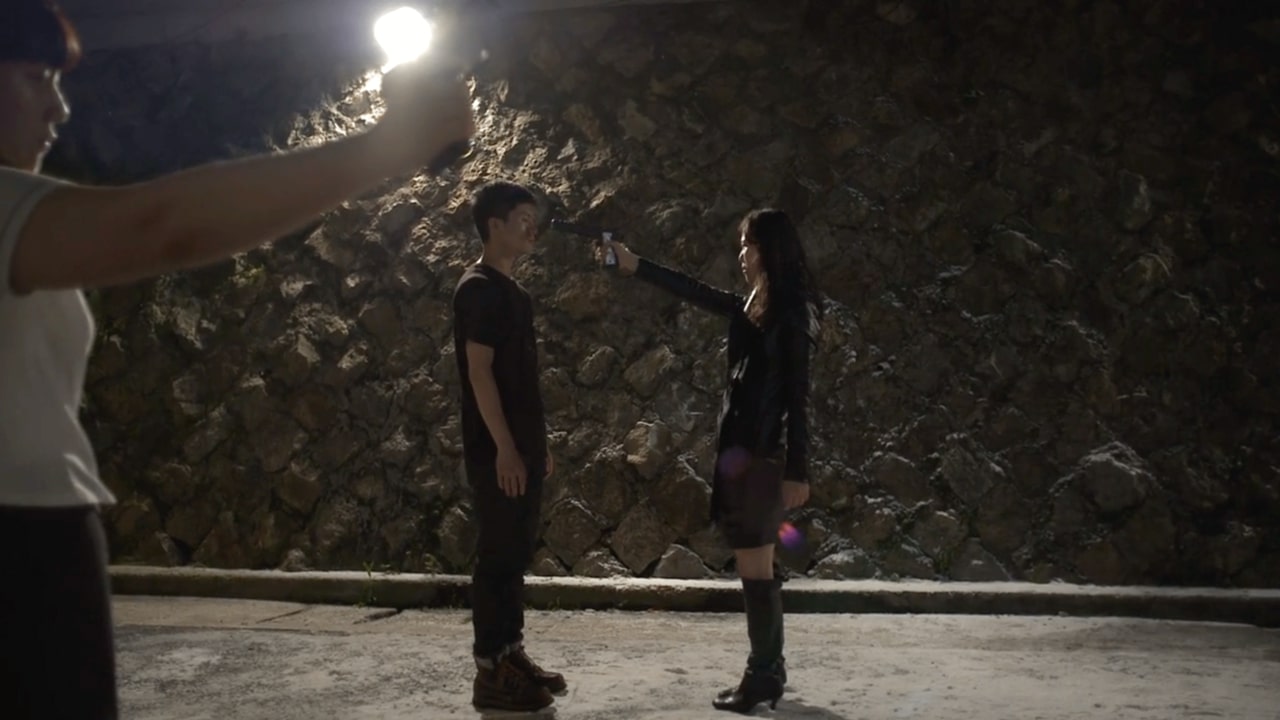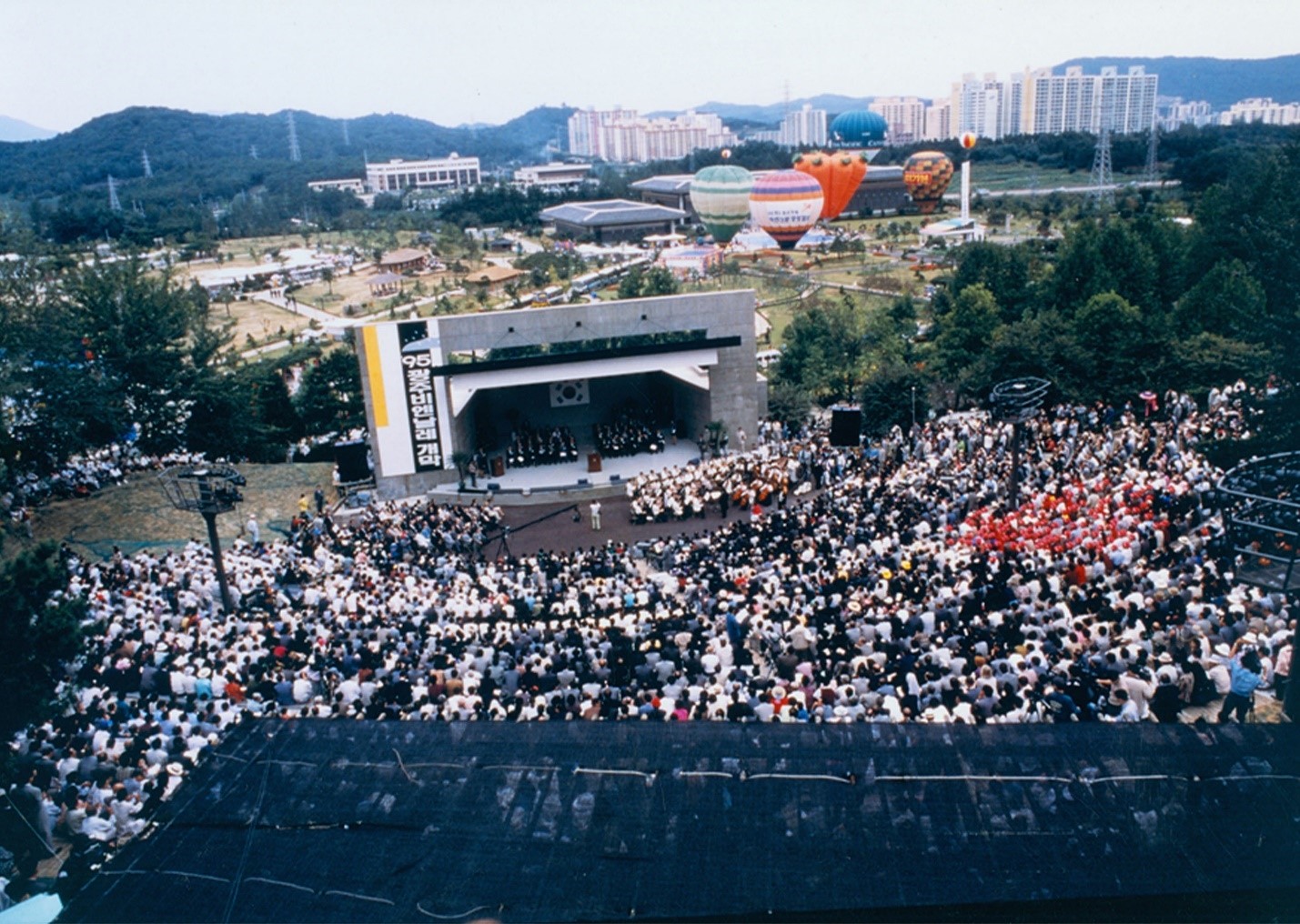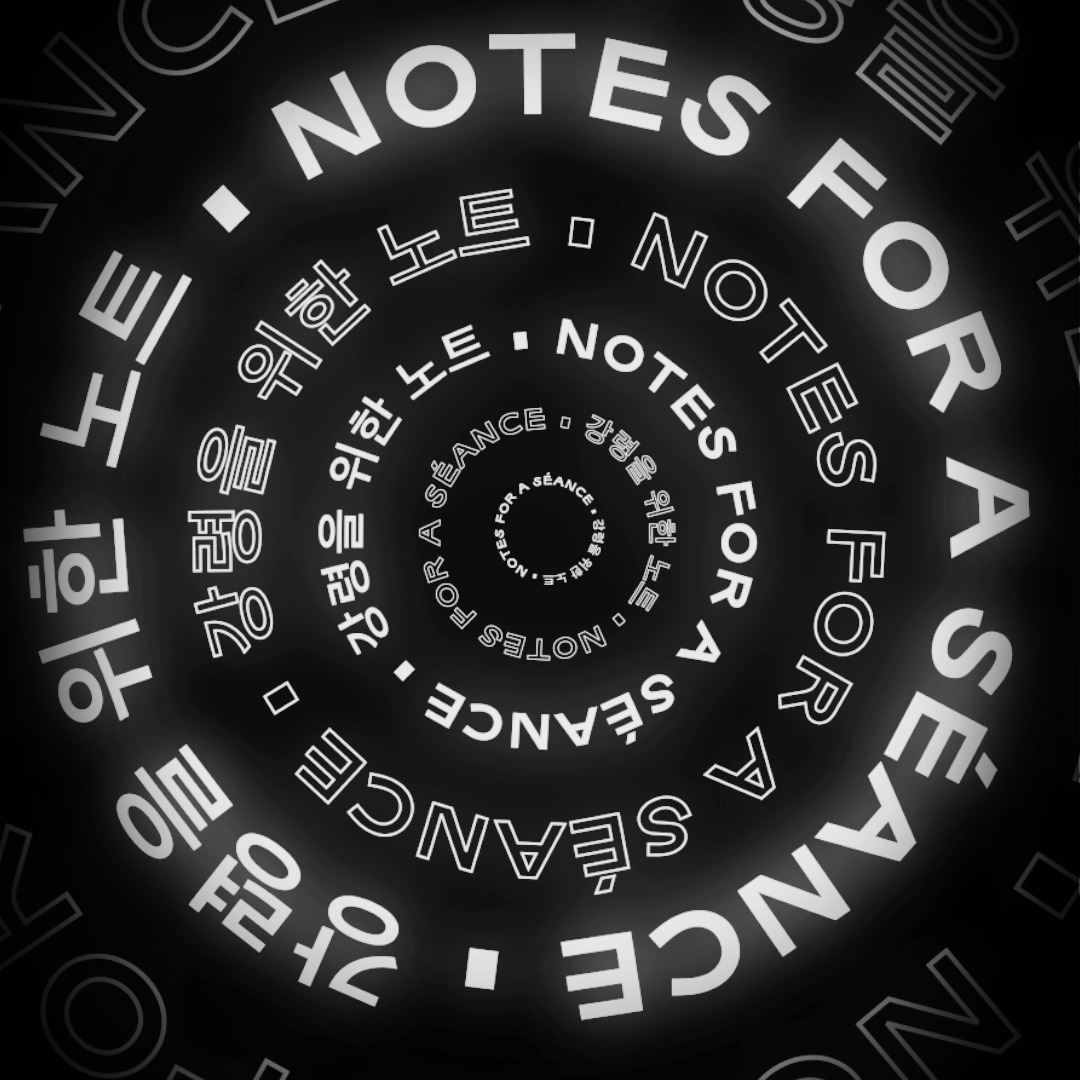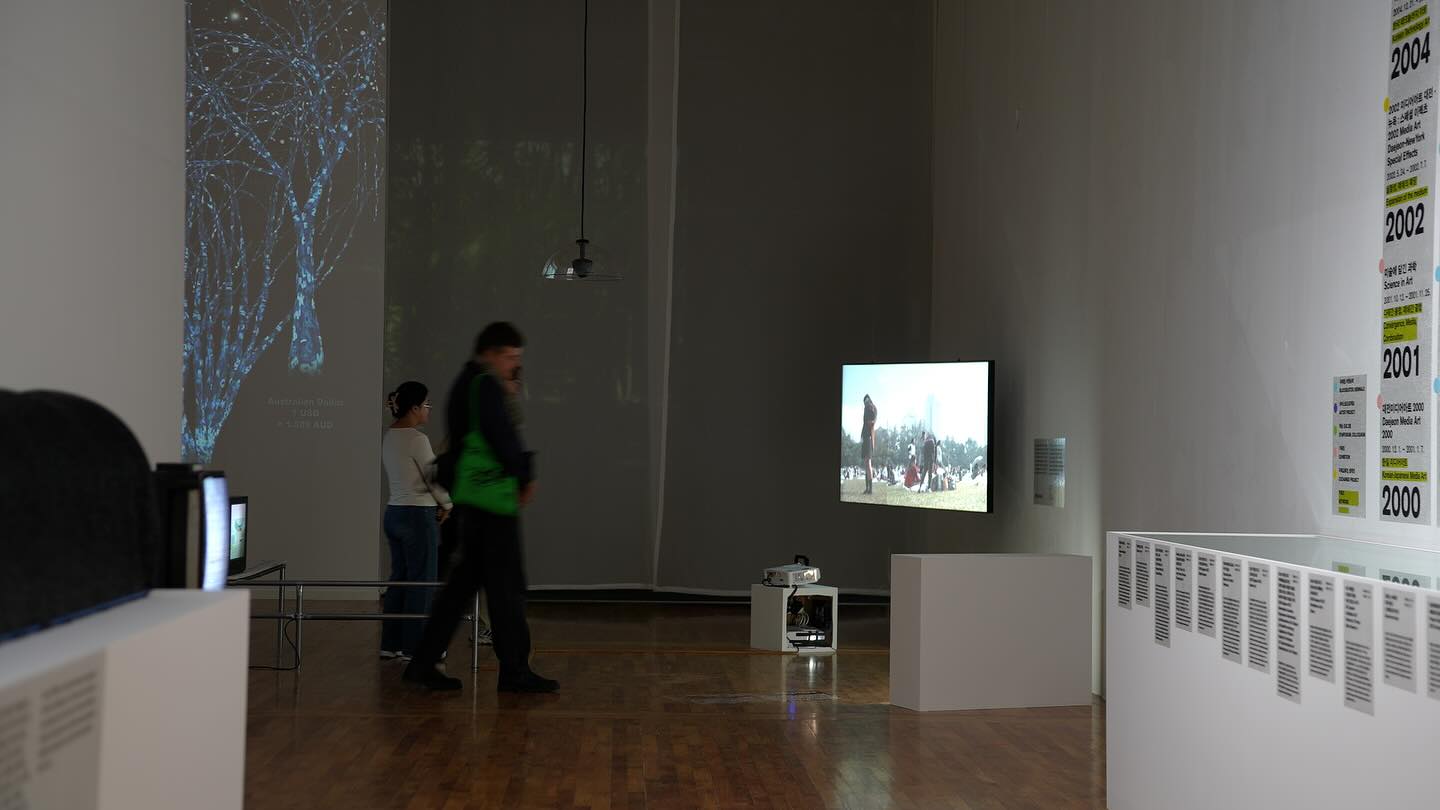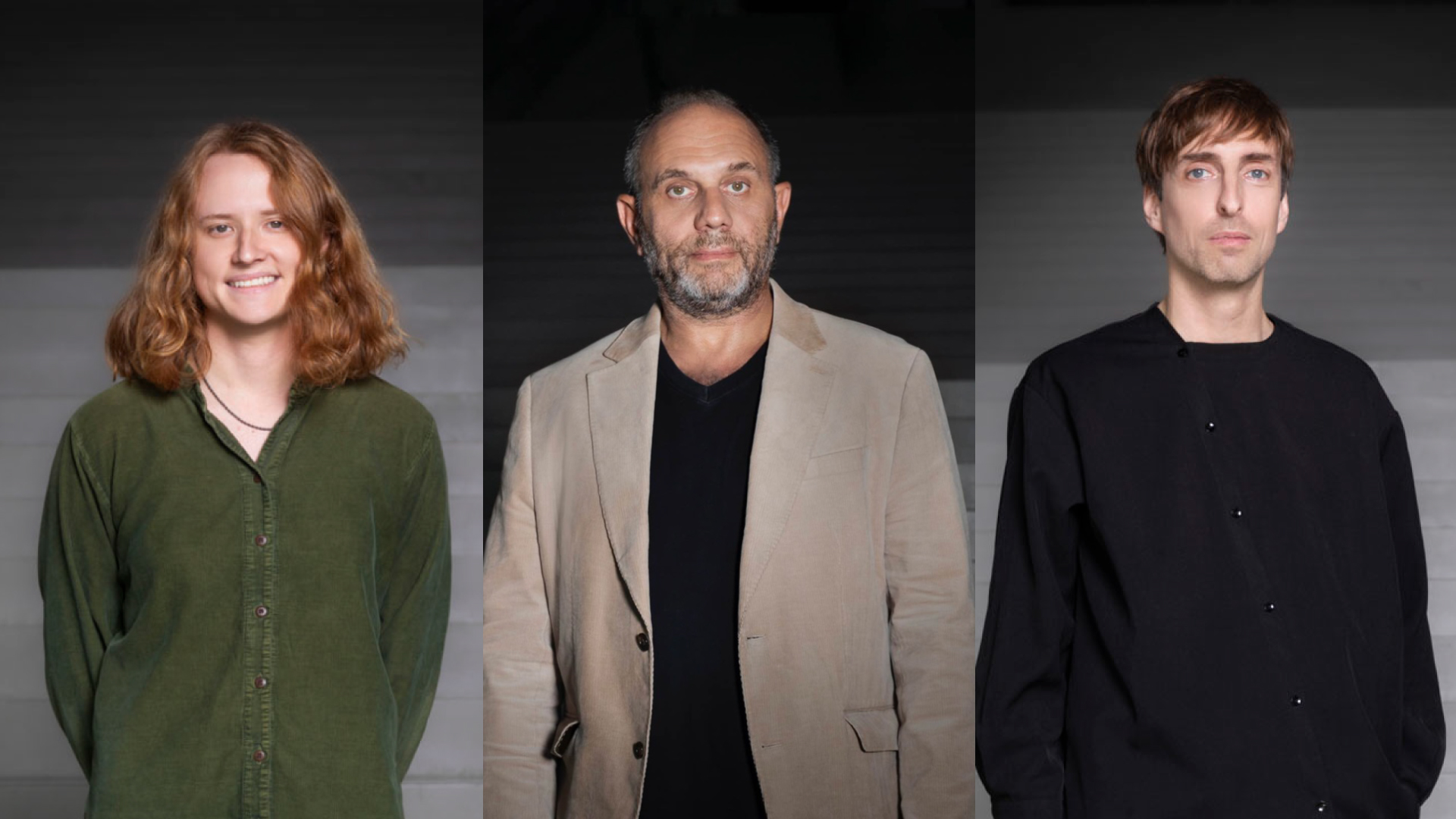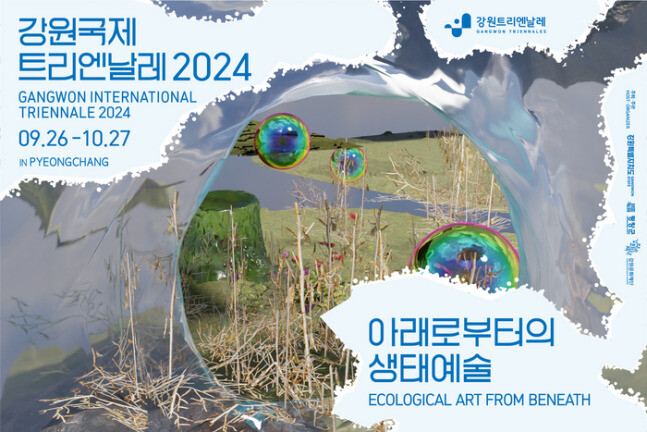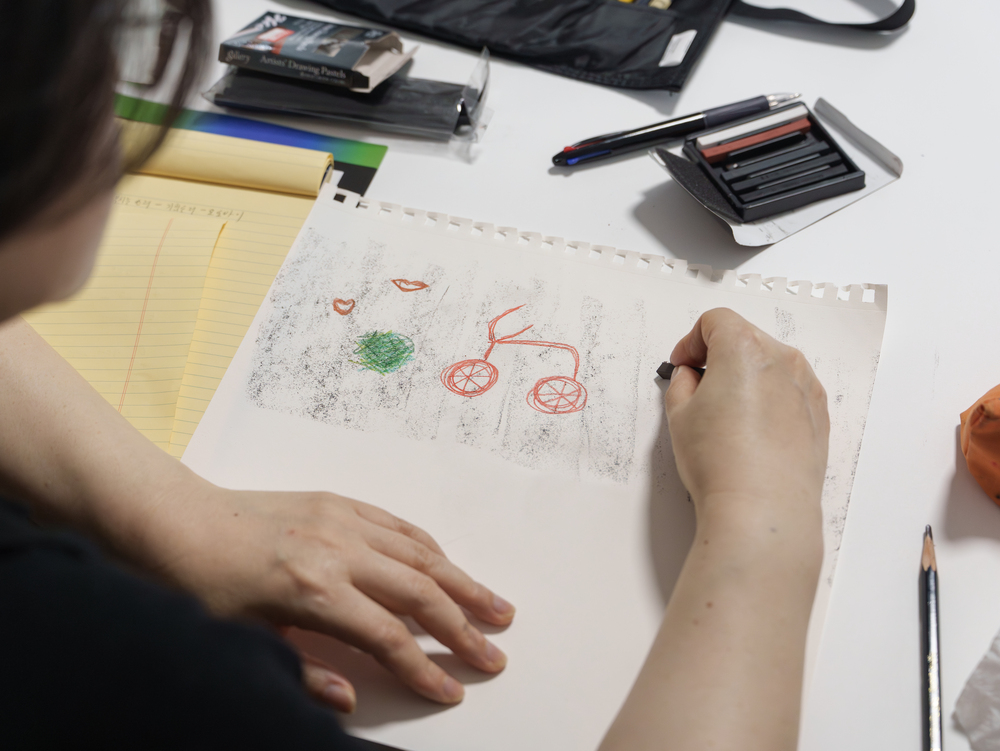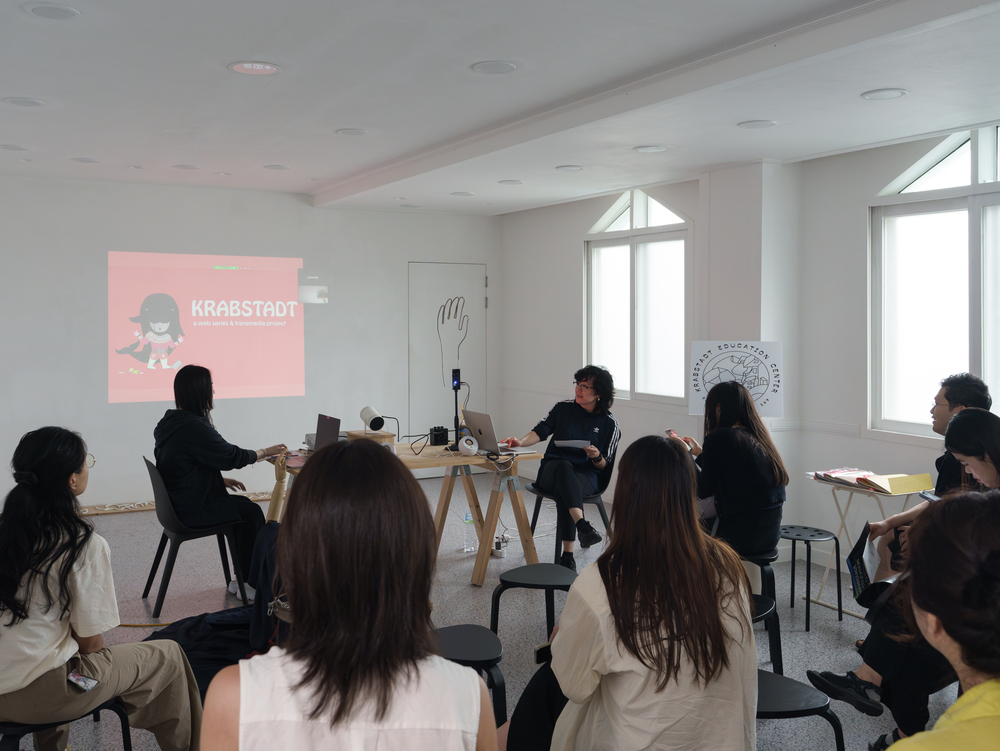Now there are nearly 280 biennials globally, listed by the Biennial Foundation’s Directory of Biennials. The Venice Biennial or La Biennale di Venezia was the first biennial, held in 1895, but it was in the 1990s when the number of biennials began to increase worldwide.
Because of the rapid economic development, the demand for art significantly increased around the world, and numbers of organizations started to hold their own biennials, which spanned various types in different regions. And based on these changes, a number of biennials began to offer alternative Western models of international art.
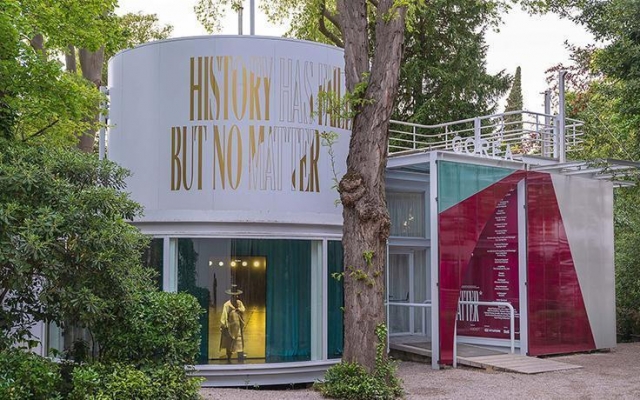 "History Has Failed Us, but No Matter." Korean Pavilion at the Venice Biennale. May 11–November 24, 2019.
"History Has Failed Us, but No Matter." Korean Pavilion at the Venice Biennale. May 11–November 24, 2019.One of the first Korean art biennials was established in this background, and now the number has grown to about ten, and seven are listed in the Biennial Foundation’s Directory of Biennials.
While there are a number of biennials held in the country, Gwangju Biennale, Busan Biennale, and Seoul Mediacity Biennale are often considered the most representative Korean biennials focusing on contemporary art.
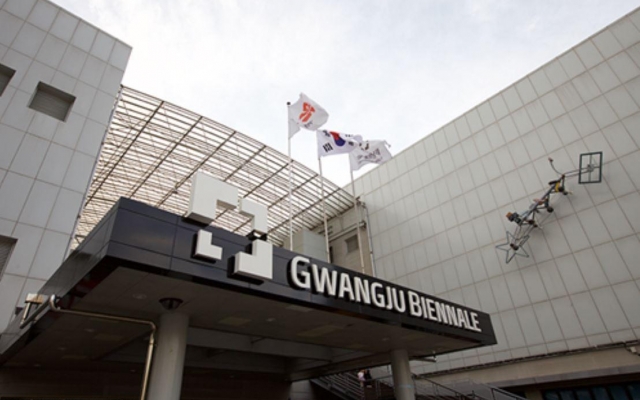
Exterior view of the Gwangju Biennale Exhibition Hall. Courtesy of the Gwangju Biennale Foundation.
Founded in 1995, the Gwangju Biennale is regarded as the first biennial to be held in Korea and Northeast Asia. It is also the largest in the country that has been established through active support from the government during the time when globalism emerged as an important ideology.
The biennial began during the time when these large international art exhibitions began to be seen as big business for local economies. As the city where the May 18, 1980, Gwangju Democratization Movement took place, Gwangju has become the best region that can add another resource of different locales and promote Korean contemporary art to the international world.
The Gwangju Biennale is co-organized by the Gwangju Biennale Foundation and Gwangju Metropolitan City. The Fourteenth Gwangju Biennale, scheduled to be held from April 7 to July 9, 2023, will be directed by Sook-Kyung Lee, former commissioner of the Korean Pavilion at the Venice Biennale and the research curator of Tate Research Centre: Asia-Pacific. Gwangju is a city in the southwest corner of South Korea.
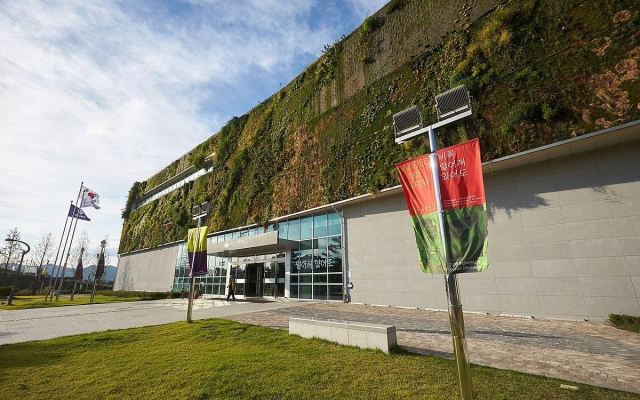
Exterior view of the Museum of Contemporary Art, Busan.
The Busan Biennale was founded in 1998 under the name of Busan International Art Festival. Its current name has been used since 2002. The biennial was founded based on the Busan Youth Biennial, which was originally held for young Korean artists under the age of thirty-five to share discourse on contemporary art. The historical significance of the Busan Youth Biennial lies in the fact that the event was organized voluntarily by the local artists in 1981 without any support from the government
The Busan Youth Biennial was later merged with the Sea Art Festival, which was founded in 1987, and both events and the Busan International Outdoor Sculpture Symposium were later integrated and began to operate under one organization as the Busan Museum of Art opened in 1998. Now the Busan Biennale and the Sea Art Festival are held alternately every year and are operated by the Busan Biennale Organizing Committee.
The Busan Biennale will take place from September 3 to November 6, 2022, under the title of We, on the Rising Wave. Curator Haeju Kim, a former deputy director of Art Sonje Center, is appointed artistic director of the Busan Biennale 2022. Busan is Korea’s second-largest city located in the southeast corner of the Korean peninsula.
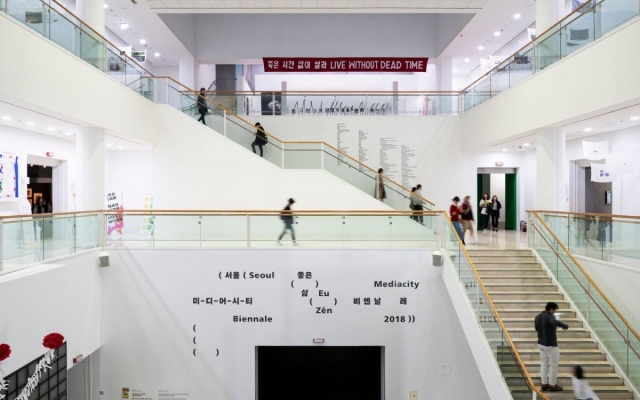
"Eu Zên." 10th Seoul Mediacity Biennale at the Seoul Museum of Art (SeMA). September 6 - November 18, 2018.
The Seoul Media City Biennale is hosted by the Seoul Museum of Art (SeMA) in Seoul. It is a biennial that focuses on media art that combines art, science, and technology.
The biennial was originally a part of “Media_City Seoul 2000,” the millennium project held by the Seoul Metropolitan Government, but the project has transformed to become a biennial since its second edition. From 2013, SeMA has been taking the lead in operating the biennial.
The last edition of the Seoul Mediacity Biennale was held in 2021, postponed a year because of the impact of COVID-19. The twelfth edition is scheduled to be held in 2023, and the selection of an artistic director and the hosting plan will be made this year.
Other biennials held in Korea include the Daejeon Biennale, Geumgang Nature Art Biennale, Changwon Sculpture Biennale, Daegu Photo Biennale, Gangwon International Triennale, and Tongyeong Triennale.



